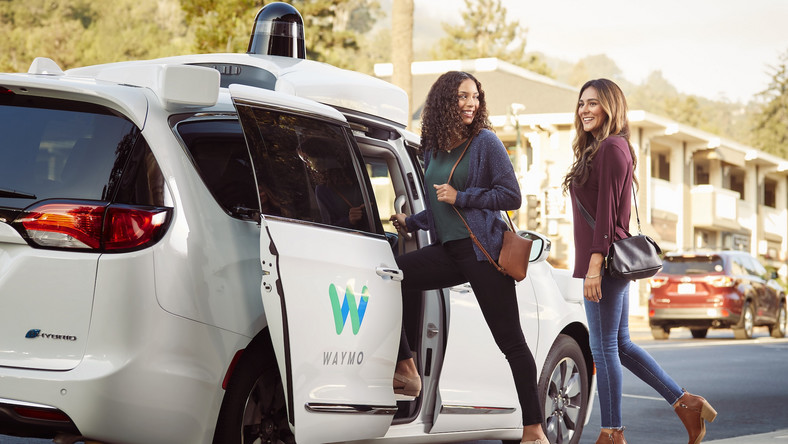|
Getting your Trinity Audio player ready...
|
In a significant move to expand its autonomous vehicle (AV) fleet, Waymo has announced a partnership with Hyundai to introduce the IONIQ 5 EV to its growing robotaxi fleet. The collaboration, revealed on Friday, marks a key development in the world of driverless transportation, bringing together Waymo’s cutting-edge self-driving technology and Hyundai’s innovative electric vehicle (EV) engineering.
Waymo, the self-driving unit of Google’s parent company Alphabet, plans to begin on-road testing of the Waymo-equipped IONIQ 5 by late 2025. The IONIQ 5 is expected to be available to riders “in the years to follow,” according to a statement from the company.
Scaling the Robotaxi Fleet with the IONIQ 5
The IONIQ 5 will not immediately replace any of Waymo’s current vehicles, but it will play an integral role in expanding the company’s autonomous fleet. Waymo first launched its robotaxi service using Chrysler Pacifica hybrid vans, which have since been phased out.
Currently, the company relies heavily on Jaguar I-Pace SUVs, many of which are aging as the network grows. Waymo is also testing new autonomous vans designed specifically for driverless use, created by China-based Zeekr, in San Francisco.
However, the introduction of the IONIQ 5 comes at a critical juncture, as Waymo aims to meet increasing demand and maintain its leadership in the competitive autonomous vehicle space. With plans for “significant volume” production of the IONIQ 5, this partnership could help Waymo address the churn of vehicles in its network, offering a more modern, sustainable option for riders. While exact production numbers were not disclosed, it is clear that both companies are banking on the IONIQ 5 to become a central figure in Waymo’s robotaxi service.
Hyundai’s Investment in Autonomous Technology
For Hyundai, the collaboration with Waymo signals a renewed commitment to autonomous vehicle development, particularly after the challenges it has faced with Motional, an autonomous vehicle joint venture it created with Aptiv. Motional recently went through a major restructuring after Aptiv backed away, leading to hundreds of layoffs and the departure of its CEO, Karl Iagnemma, in September.
Hyundai will manufacture the IONIQ 5 at its new factory in Georgia, with Waymo’s autonomous driving systems integrated at a separate facility. The partnership with Waymo allows Hyundai to further establish itself in the growing autonomous vehicle market, despite the setbacks Motional faced.
A separate autonomous version of the IONIQ 5 is already being tested with Avride, a Yandex spinout, which will ultimately become available on Uber’s ride-hailing network. This marks Hyundai’s ongoing investment in positioning the IONIQ 5 as a versatile option for a range of autonomous applications, including ride-hailing and robotaxi services.
Expanding the Reach of Waymo’s Autonomous Service
As the demand for autonomous ride-hailing services continues to rise, Waymo has been quick to expand its footprint. In September, Waymo announced a partnership with Uber, marking the first time Waymo’s robotaxis would be integrated into Uber’s ride-hailing network. Starting in Austin and Atlanta in 2025, Uber users will be able to hail Waymo AVs directly through the Uber app.
This partnership comes at a critical moment for both companies. Uber has long signaled its interest in autonomous technology, and Waymo’s expertise in self-driving systems provides a natural fit for Uber’s expansive platform. For Waymo, teaming up with Uber offers a new distribution channel to scale its service faster and reach more customers.
Challenges and Opportunities in the Autonomous Vehicle Market
While the future looks promising for autonomous vehicles, there are still significant challenges facing the industry, particularly around regulation, public perception, and technology development. Although Waymo is seen as a frontrunner in the race for fully driverless vehicles, the company has encountered hurdles in scaling its robotaxi service due to complex safety regulations and operational costs.
For Hyundai, the partnership with Waymo provides an opportunity to rebound from recent struggles with Motional. With Avride and Waymo both testing autonomous versions of the IONIQ 5, the South Korean automaker is strategically positioning itself at the forefront of the growing EV and autonomous vehicle markets.
The IONIQ 5’s modern design, coupled with Hyundai’s expertise in electric vehicles, makes it an ideal candidate for autonomous operation, offering a sustainable and technologically advanced solution for the growing demand for driverless ride-hailing services. If the partnership proves successful, it could pave the way for other automakers to explore robotaxi collaborations, further cementing the role of autonomous vehicles in the future of transportation.
Looking Ahead: What to Expect in the Coming Years
As the autonomous vehicle market continues to evolve, partnerships like the one between Waymo and Hyundai will play a crucial role in shaping the future of urban mobility. By integrating the IONIQ 5 into its fleet, Waymo is betting on the long-term viability of fully autonomous vehicles as a solution to urban congestion, sustainability, and ride-hailing efficiency.
While exact timelines remain unclear, the late 2025 on-road testing of the IONIQ 5 is a clear signal that both Waymo and Hyundai are serious about taking their place at the forefront of autonomous technology. Riders in major US cities could expect to see the IONIQ 5 AVs on the streets within the next few years, offering a glimpse of what the future of transportation may hold.
As both companies work to overcome challenges in vehicle integration, regulatory approvals, and public trust, their success could serve as a blueprint for other industry players looking to break into the rapidly growing autonomous vehicle market.



